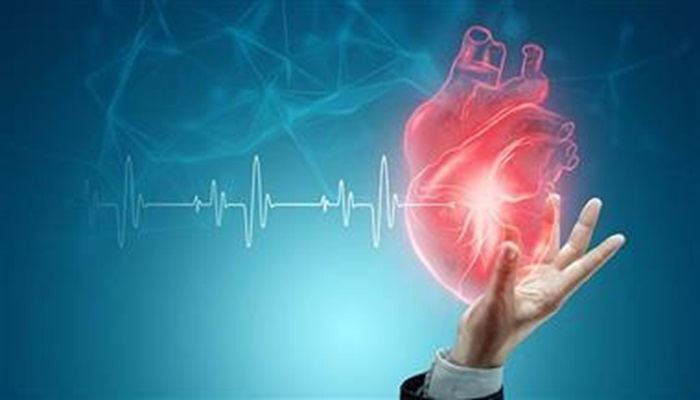Arrhythmia, a condition characterized by irregular heartbeats, poses significant challenges to cardiovascular health.
Understanding its impact on the heart and overall well-being is crucial for patients and healthcare providers alike. This comprehensive guide explores the mechanisms, symptoms, complications, diagnosis, treatment options, and preventive strategies associated with arrhythmia.
Introduction
The cardiovascular system, comprising the heart and blood vessels, functions meticulously to circulate blood throughout the body, ensuring organs receive oxygen and nutrients for optimal function. Central to this process is the heart’s rhythmic contraction, orchestrated by electrical impulses that coordinate its chambers’ activity. When this rhythm falters, as in the case of arrhythmia, the consequences can be profound.
see also: The 5 Best Causes of Arrhythmia
Definition And Types of Arrhythmia
Arrhythmia refers to abnormal heart rhythms that disrupt the heart’s ability to pump blood effectively. There are several types of arrhythmias, each affecting the heart in distinct ways. Common forms include:
Atrial Fibrillation (AF): Characterized by rapid, irregular contractions of the heart’s upper chambers (atria).
Ventricular Tachycardia (VT): Involves rapid heartbeats originating from the heart’s lower chambers (ventricles).
Bradycardia: Where the heart beats too slowly, potentially causing inadequate blood flow.
Premature Ventricular Contractions (PVCs): Extra, abnormal heartbeats originating in the ventricles.
Normal Heart Function
To appreciate the impact of arrhythmia, understanding normal heart function is crucial. The heart’s electrical system, governed by specialized cells, initiates and coordinates each heartbeat. A healthy heart rhythm ensures synchronized contractions, maintaining optimal blood flow and organ perfusion.
Mechanism of Arrhythmia
Arrhythmias arise from disruptions in the heart’s electrical impulses.
These disruptions can stem from various factors, including:
Electrical Circuit Disturbances: Abnormal pathways that create irregular electrical signals.
Triggered Activity: Abnormal cells in the heart causing premature beats.
Reentry: When electrical signals loop back in the heart, causing rapid and chaotic contractions.
Impact on Cardiovascular Function
The primary consequence of arrhythmia is its detrimental effect on cardiovascular function. Irregular heart rhythms compromise the heart’s pumping efficiency, leading to:
Reduced Cardiac Output: Inadequate blood circulation to meet the body’s demands.
Blood Pooling and Clot Formation: Stagnant blood in the heart chambers increases the risk of clot formation, potentially causing strokes or pulmonary embolism.
Heart Failure: Prolonged arrhythmias can weaken the heart muscle, impairing its ability to pump effectively.
Symptoms
Recognizing symptoms of arrhythmia is crucial for prompt diagnosis and management. Symptoms may include:
Palpitations: Sensations of irregular or rapid heartbeats.
Dizziness or Lightheadedness: Caused by inadequate blood flow to the brain.
Shortness of Breath: Difficulty breathing due to reduced cardiac output.
Chest Pain or Discomfort: Often associated with decreased blood flow to the heart muscle.
Complications
Untreated or poorly managed arrhythmias can lead to severe complications:
Stroke: Blood clots originating in the heart can travel to the brain, causing a stroke.
Heart Failure: Persistent arrhythmias can weaken the heart muscle over time.
Sudden Cardiac Arrest: A life-threatening condition where the heart suddenly stops beating effectively.
Diagnostic Methods
Diagnosing arrhythmias involves various tests and procedures, including:
Electrocardiogram (ECG/EKG): Records the heart’s electrical activity to detect abnormal rhythms.
Holter Monitor: A portable device worn to monitor heart rhythm over 24-48 hours.
Event Recorder: Records heart rhythms for several weeks, triggered by symptoms.
Treatment Options
Treatment aims to restore normal heart rhythm and prevent complications. Options include:
Medications: Antiarrhythmic drugs, beta-blockers, and calcium channel blockers to control heart rate and rhythm.
Cardioversion: Electrical shocks to restore normal heart rhythm.
Catheter Ablation: Destroys abnormal heart tissue responsible for triggering arrhythmias.
Implantable Devices: Pacemakers to regulate heart rate or implantable cardioverter-defibrillators (ICDs) to treat life-threatening arrhythmias.
Management And Prognosis
Managing arrhythmias requires a multifaceted approach:
Lifestyle Changes: Adopting a heart-healthy diet, regular exercise, stress management, and avoiding triggers like excessive alcohol or caffeine.
Regular Monitoring: Follow-up visits with healthcare providers to monitor heart rhythm and adjust treatment as needed.
Education and Support: Patient education on recognizing symptoms and adhering to treatment plans.
Prevention Strategies
Reducing the risk of arrhythmias involves:
Managing Underlying Conditions: Treating hypertension, diabetes, and hyperthyroidism.
Avoiding Triggers: Such as smoking, excessive alcohol consumption, and illicit drug use.
Maintaining a Healthy Lifestyle: Including regular exercise and a balanced diet rich in fruits, vegetables, and lean proteins.
Conclusion
In conclusion, arrhythmia significantly impacts cardiovascular health by disrupting normal heart rhythm and compromising blood circulation. Awareness of symptoms, timely diagnosis, and appropriate management are crucial for optimizing outcomes and reducing the risk of complications. By understanding the mechanisms, symptoms, diagnostic methods, treatment options, and prevention strategies outlined in this article, patients and healthcare providers can work together to effectively manage arrhythmia and promote heart health.

